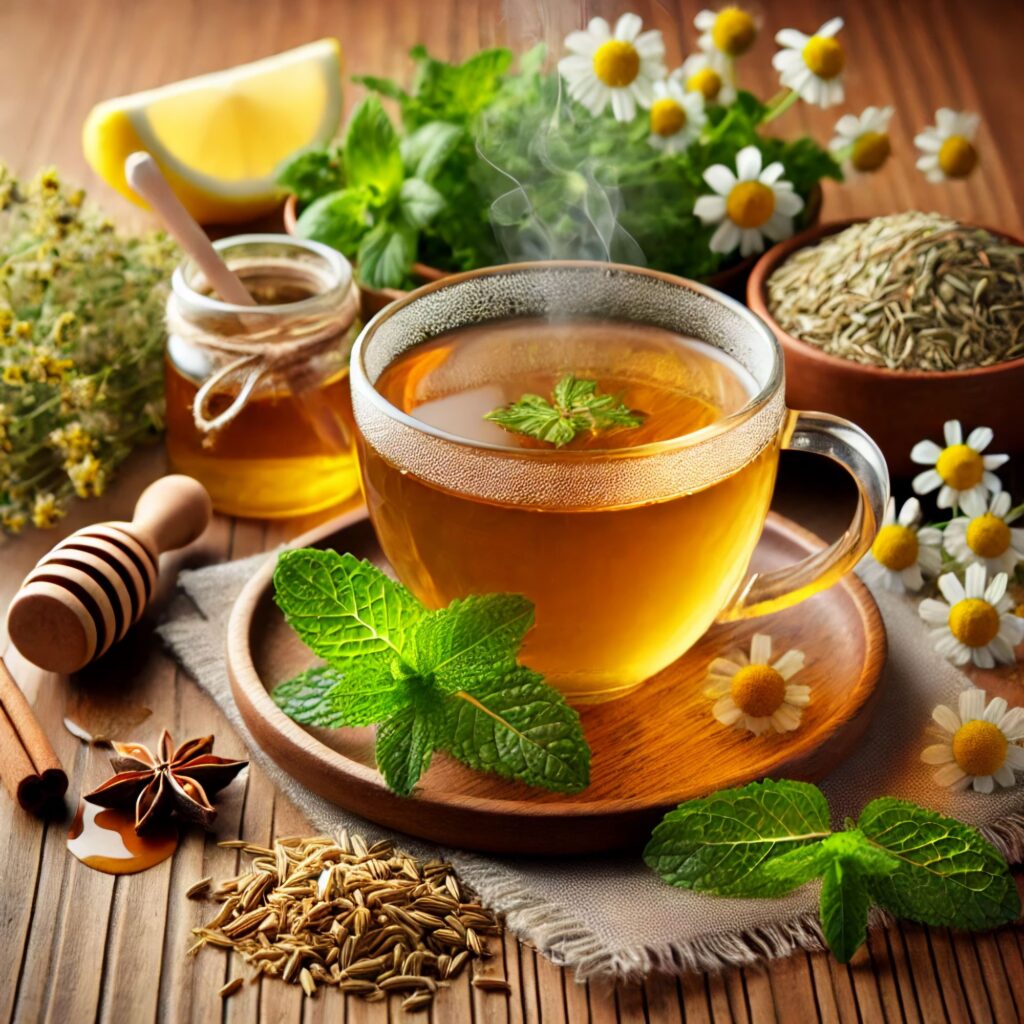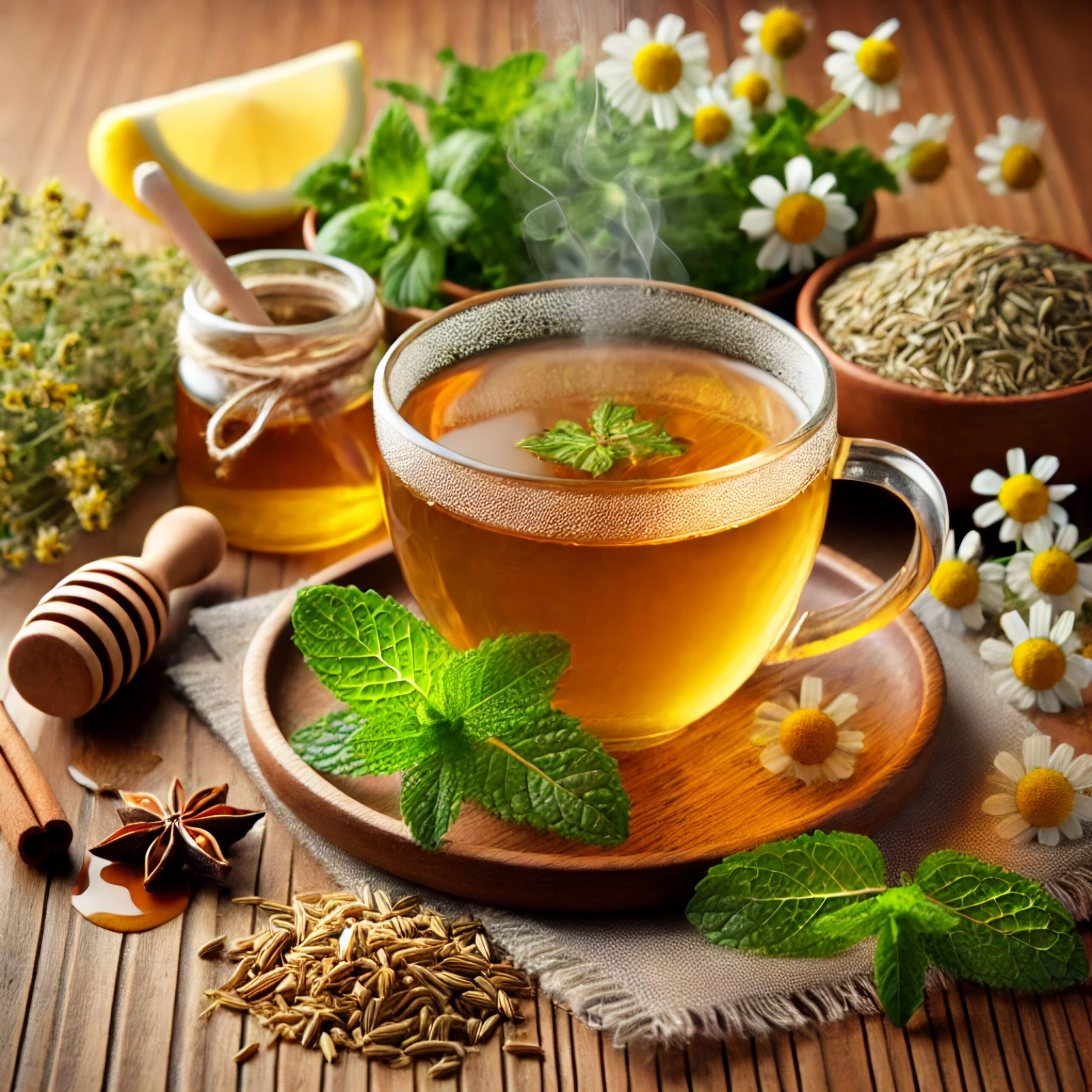Tea lovers appreciate unique herbal combinations that offer both flavor and comfort. Tea with Mint, Chamomile, and Fennel is a fragrant and soothing infusion that brings together the freshness of mint, the gentle floral notes of chamomile, and the subtle sweetness of fennel. This aromatic blend is perfect for any time of day, whether enjoyed warm or as a refreshing iced tea.
Aromatic Herbal Infusion with a Balanced Flavor
Blending herbs allows for a creative and enjoyable tea experience. Mint adds a cooling sensation, chamomile provides a delicate floral touch, and fennel contributes a naturally sweet, slightly earthy taste. These three ingredients complement each other beautifully, creating a tea that feels both light and satisfying.
For those who appreciate well-balanced herbal teas, this blend offers a smooth and refreshing taste profile. It’s a perfect choice for those who enjoy mild herbal notes with a hint of natural sweetness.
The Art of Blending Tea
Crafting the perfect tea blend is about finding the right harmony between flavors. The combination of mint, chamomile, and fennel offers a unique experience, making it an excellent choice for both warm and iced tea lovers. When steeped properly, the tea develops a well-rounded taste that lingers pleasantly.
Each ingredient plays a vital role in enhancing the overall tea-drinking experience. Whether served in the morning, afternoon, or evening, this infusion delivers a comforting and aromatic beverage.
Simple Steps to Prepare This Tea
Making Tea with Mint, Chamomile, and Fennel is simple and requires only a few steps. Here’s how to prepare a delicious cup:
Ingredients:
1. 1 teaspoon dried mint leaves
2. 1 teaspoon dried chamomile flowers
3. 1 teaspoon fennel seeds
4. 2 cups hot water
5. Optional: honey or lemon for extra flavor
Instructions:
1. Boil water and allow it to cool slightly before pouring over the herbs.
2. Add the dried mint, chamomile, and fennel to a teapot or infuser.
3. Pour the hot water over the herbs and let steep for 5–7 minutes.
4. Strain the tea into a cup and enjoy warm.
5. For a refreshing iced version, let the tea cool, then serve over ice.

Enjoying Tea in Different Ways
One of the great things about this tea is its versatility. It can be enjoyed in various ways depending on personal preference. Some tea enthusiasts like to add a dash of honey for a hint of sweetness, while others enjoy it with a slice of lemon for a citrusy touch.
This tea also pairs well with light snacks, making it a great choice for an afternoon break or a relaxing moment before bed.
Creative Variations for a Personalized Experience
Tea enthusiasts can explore different ways to enhance this blend. Here are some simple variations:
Iced Version: Brew the tea as usual, let it cool, then refrigerate before serving over ice.
Spiced Infusion: Add a small piece of cinnamon or a clove for a warming twist.
Citrus Blend: Include a slice of orange or lemon for a refreshing citrus note.
Each variation offers a unique experience, making it easy to find the perfect way to enjoy this tea.
Pairing Tea with Everyday Moments
Tea-drinking is more than just a habit—it’s a way to take a moment for yourself. Whether starting the day with a warm cup, taking a relaxing break in the afternoon, or winding down in the evening, Tea with Mint, Chamomile, and Fennel fits into any routine.
Sipping on a freshly brewed cup of this tea is an easy way to enjoy a pleasant moment of relaxation. The naturally aromatic herbs create a tea experience that feels both uplifting and calming.
Tea lovers enjoy discovering new blends and experimenting with different ingredients. Tea with Mint, Chamomile, and Fennel is just one of many creative herbal infusions to explore.
For more tea ideas and inspiration, explore the tea section on Tea Recipe Ideas, where you’ll find a variety of unique blends, each with its own delightful combination of flavors.
Discover more refreshing tea creations below, each offering a unique mix of ingredients and flavors to inspire your next cup.
